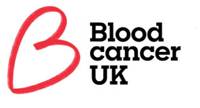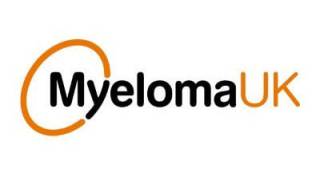Multiple Myeloma Lab
Group Leader: Professor Kwee Yong
Research
The Myeloma Laboratory at UCL aims to bring scientific endeavour to the clinic for patient benefit. Myeloma is a cancer of plasma cells that expand in the bone marrow, causing bone marrow failure and bone destruction. Despite considerable therapeutic advances, myeloma remains incurable and most patients will die of their cancer.
Our work seeks to understand the role of the bone marrow microenvironment in promoting tumour growth and drug resistance, including mechanisms of immune dysfunction. Our research has a strong translational focus to develop new anti-myeloma therapies, including cellular immunotherapies, and to advance early detection strategies for myeloma. Myeloma is a genomically and biologically complex tumour, and we seek to discover new biomarkers for drug sensitivity and response to novel therapies. Our work utilises disease models such as cellular co-cultures, ex-vivo and in-vivo models, and these are interrogated using functional assays, high dimensional flow cytometry, CyTOF, immunohistochemistry, next generation sequencing and genetic modification.
We work closely with the large clinical service at UCLH, and with national NCRN studies to interrogate the drivers of disease resistance and relapse, the benefit of early stem cell transplantation and the role of immunotherapeutic strategies in deepening disease response in the Myeloma XV trial in newly diagnosed patients.
The Myeloma Immunotherapy group is led by Dr Lydia Lee. Current work is focused on optimising cellular therapies through improved understanding of the marrow immune environment, by interrogating patient bone marrow, and by using immune competent murine models. Refinement of CAR-T approaches, and exploration of novel targets remains at the forefront of our work. Work is also focused on the role of immune dysfunction and progression of myeloma. Recent work in newly diagnosed MM patients reveal the presence of dysfunctional marrow resident effector cells that influence clinical outcomes, and we are investigating the role of changes in bone marrow immune function when patients progress from smouldering to active symptomatic multiple myeloma.
Research project examples
- Enhancing the anti-myeloma activity of proteasome inhibition
Myeloma cells secrete excess monoclonal immunoglobulin and are uniquely dependent on protein processing pathways. This is exploited by the therapeutic use of proteasome inhibitors (PIs) that have transformed the outlook for many patients, however not all patients respond and many will develop resistance. One mechanism of resistance is the utilisation of an alternate protein degradation pathway, autophagy. We are working to define the role of autophagy in mediating resistance to proteasome inhibitor therapy. Our work will uncover how manipulating the autophagic process can improve responses to PIs, and identify which patient subgroups may benefit from this approach.
Myeloma cells are especially dependent on interactions with their bone marrow environment, where soluble factors and cellular interactions promote tumour growth and reduce the effectiveness of therapeutic drugs like PIs. We seek to understand the cellular and molecular bases for the protective effect of stroma, and how this can be overcome pharmacologically.
- Immune microenvironment
It is increasingly clear that disease progression couples increased tumour growth and increasing immune dysregulation in the bone marrow niche. Using cutting edge technologies, we are embarking on a program of detailed immune phenotyping of bone marrow cells and clinically correlating these findings in large patient cohorts.
From these data we have identified key T cell populations present in the bone marrow of myeloma patients at diagnosis and following autologous stem cell transplant that correlate with poor patient outcomes. These markers have application to the development of biomarkers for this disease as well as in the rational and intelligent design of immunotherapeutic strategies for this disease.
- Smouldering Myeloma
Myeloma is preceded by presursor conditions called monoclonal gammopathy of uncertain significance (MGUS) and smouldering myeloma (SMM). We seek to understand the role of the bone marrow immune environment in regulating progression to full blown myeloma. By combining clinical, biological, genomic and immunological data from patients with SMM we hope to define better models to predict disease progression and design trials to discover new therapies to prevent the development of myeloma.
- Chimeric antigen receptors
Despite the initial promise of CAR T cell therapy in MM, prolonged responses are not seen and there remain challenges to the use of CAR T cell therapy in this cancer. Among these are the relatively low level of surface expression of myeloma specific antigens, and the immune suppressive factors in the myeloma microenvironment contributing to the low levels of T cell persistence compared to CD19 CARs. This lab developed the first MM CAR to enter clinical trials in Europe (APRIL CAR which targets two myeloma antigens: BCMA and TACI) and in collaboration with the Pule Lab and Autolus Therapeutics continue to develop novel strategies for the optimal use of CAR T cells in multiple myeloma.
Selected Publications
Hagos YB, Lecat CSY, Patel D, Mikolajczak A, Castillo SP, Lyon EJ, Foster K, Tran TA, Lee LSH, Rodriguez-Justo M, Yong KL, Yuan Y. Deep learning enables spatial mapping of the mosaic microenvironment of myeloma bone marrow trephine biopsies. Cancer Res. 2023.
Lee L, Lim WC, Galas-Filipowicz D, Fung K, Taylor J, Patel D, Akbar Z, Alvarez Mediavilla E, Wawrzyniecka P, Shome D, Reijmers RM, Gregg T, Wood L ... Yong K, Pule M, Popat R. Limited efficacy of APRIL CAR in patients with multiple myeloma indicate challenges in the use of natural ligands for CAR T-cell therapy. J Immunother Cancer. 2023
Maura F, Boyle EM, Coffey D, Maclachlan K, Gagler D, Diamond B, Ghamlouch H, Blaney P, Ziccheddu B, Cirrincione A, Chojnacka M, Wang Y, Siegel A, Hoffman JE, Kazandjian D ... Landgren O. Genomic and immune signatures predict clinical outcome in newly diagnosed multiple myeloma treated with immunotherapy regimens. Nat Cancer. 2023
Bustoros M, Anand S, Sklavenitis-Pistofidis R, Redd R, Boyle EM, Zhitomirsky B, Dunford AJ, Tai YT, Chavda SJ, … Yong K, Morgan GJ, Aguet F, Getz G, Ghobrial IM. Genetic subtypes of smoldering multiple myeloma are associated with distinct pathogenic phenotypes and clinical outcomes. Nat Commun. (2022); 13(1):3449.
Sudha P, Ahsan A, Ashby C, … Yong KL, van Rhee F, Pierceall WE, Morgan GJ, Flynt E, Gooding S, Abonour R, Ramasamy K, Thakurta A, Walker BA. Myeloma Genome Project Panel is a Comprehensive Targeted Genomics Panel for Molecular Profiling of Patients with Multiple Myeloma. Clin Cancer Res. (2022); 28(13):2854-2864.
Lee, Lydia, Nouf Alrasheed, Garima Khandelwal, Evelyn Fitzsimons, Huw Richards, William Wilson, Selina J. Chavda ... Kwee Yong. Increased Immune-Regulatory Receptor Expression on Effector T Cells as Early Indicators of Relapse Following Autologous Stem Cell Transplantation for Multiple Myeloma. Frontiers in Immunology 12 (2021).
Ainley, Louise, Marquita Camilleri, Selina J. Chavda, Annabel McMillan, Lydia Lee, Rakesh Popat, Francesca Sillito, and Kwee Yong. Applying Current Smouldering Myeloma Risk Models to a UK Single-Centre Cohort and Clinical Features at Progression. British Journal of Haematology, 23 November 2021.
Chan, Wei Yee, Lara Howells, William Wilson, Emilie Sanchez, Louise Ainley, Selina J. Chavda, Emma Dowling et al. Serological Response to the BNT162b2 MRNA or ChAdOx1 NCoV-19 COVID-19 Vaccine after First and Second Doses in Patients with Plasma Cell Disorders: Influence of Host and Disease Factors. British Journal of Haematology, 10 October 2021.
Lee, Lydia Sarah Hui, and Kwee L. Yong. BCMA CARs in Multiple Myeloma: Room for More? Blood 137, no. 21 (27 May 2021): 2859-60.
Bustoros, Mark, Romanos Sklavenitis-Pistofidis, Jihye Park, Robert Redd, Benny Zhitomirsky, Andrew J. Dunford ... Yong, Kwee, Bergsagel, P. Leif, Manier, Salomon, Getz, Gad, Ghobrial, Irene. Genomic Profiling of Smoldering Multiple Myeloma Identifies Patients at a High Risk of Disease Progression. Journal of Clinical Oncology: Official Journal of the American Society of Clinical Oncology 38, no. 21 (20 July 2020): 2380-89.
Alrasheed N, Lee L, Ghorani E, Henry JY, Conde L, Chin M, Galas-Filipowicz D … Quezada SA*, Yong KL*. Marrow Infiltrating Regulatory T Cells Correlate with the Presence of Dysfunctional CD4+PD-1+ Cells and Inferior Survival in Patients with Newly Diagnosed Multiple Myeloma. Clinical Cancer Research 2020. *equal contribution
Chapman MA, Sive J, Ambrose J, Roddie C, Counsell N, Lach A, Abbasian M, Popat R, Cavenagh JD, Streetly MJ, Schey S, Koh M, Virchis AE, Crowe J, Quinn MF, D'Sa S, Cook G, Crawley CR, Pratt G, Cook M, Braganza N, Adedayo T, Smith P, Clifton-Hadley L, Owen R, Keats JF, Herrero J, Yong K. RNA sequencing of newly diagnosed patients in the PADIMAC study leads to a bortezomib/lenalidomide decision signature. Blood 132, no. 20 (15 November 2018): 2154-2165
Lee L, Draper B, Chaplin N, Philip B, Chin M, Galas-Filipowicz D, Onuoha S, Thomas S, Baldan V, Bughda R, Maciocia P, Kokalaki E, Neves M, Patel D, Rodriguez-Justo M, Francis J, Yong K*, Pule M*. An APRIL Based Chimeric Antigen Receptor for Dual Targeting of BCMA and TACI in Multiple Myeloma. Blood, January 1, 2018, blood-2017-05-781351. *equal contribution
 Close
Close






